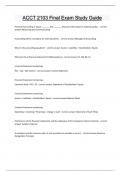Essay
How far do you agree with this statement? "For Nasser, Pan-Arabism was primarily a vehicle which enabled him to protect his power in the Arab world"
- Institution
- OCR
A model answer for the thematic unit of the OCR History A Level. Awarded top band of the mark scheme. Middle East Unit - very limited content available on the internet as it is a new spec.
[Show more]




